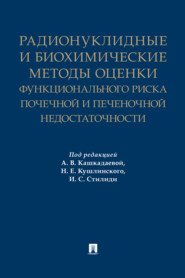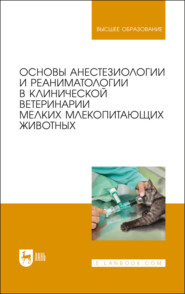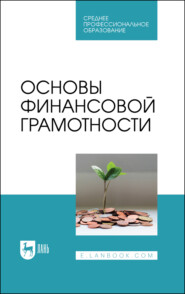По всем вопросам обращайтесь на: info@litportal.ru
(©) 2003-2024.
✖
The German Classics of the Nineteenth and Twentieth Centuries, Volume 08
Настройки чтения
Размер шрифта
Высота строк
Поля
"Look," cried Damie, "the eight is shaped just as you make it, and as the master won't have it—you know—from right to left."
Amrei motioned to him to keep quiet. She thought it terrible and sinful that Damie should talk so lightly—here, where she felt as if she were in church, or even in eternity—quite out of the world, and yet in the very midst of it. She herself opened the inside door; the room was dark as a grave, for the shutters were closed. A single sunbeam, shining through a crack in the wall, fell on the angel's head on the tile stove in such a way that the angel seemed to be laughing. Amrei crouched down in terror. When she looked up again, her uncle had opened one of the shutters, and the warm, outside air poured in. How cold it seemed in there! None of the furniture was left in the room but a bench nailed to the wall. There her mother used to spin, and there she had put Amrei's little hands together and taught her to knit.
"Come, children, let us go now," said the uncle. "It is not good to be here. Come with me to the baker and I will buy you each a white roll—or do you like biscuits better?"
"No, let us stay here a little longer," said Amrei; and she kept on stroking the place where her mother had sat. Then, pointing to a white spot on the wall, she said, half in a whisper: "There our cuckoo clock used to hang, and there our father's discharge from the army. And there the hanks of yarn that mother spun used to hang—she could spin even better than Black Marianne—Black Marianne has said so herself. She always got a skein more out of a pound than anybody else, and it was always so even—not a knot in it. And do you see that ring up there on the ceiling? It was beautiful to see her twisting the threads there. If I had been old enough to know then, I would not have let them sell mother's spindle—it would have been a fine legacy for me. But there was nobody to take any interest in us. Oh, mother dear! Oh, father dear! If you knew how we have been pushed about, it would grieve you, even in eternity."
Amrei began to weep aloud, and Damie wept with her; even the uncle dried his eyes. He again urged them to come away from the place; he was vexed for having caused himself and the children this grief. But Amrei said in a decided way:
"Even if you do go, I shall not go with you."
"How do you mean? You will not go with me at all?"
Amrei started; for she suddenly realized what she had said, and it seemed to her almost as if it had been an inspiration. But presently she answered:
"No, I don't know about that yet. I merely meant to say, that I shall not willingly leave this house until I have seen everything again. Come, Damie, you are my brother—come up into the attic. Do you remember where we used to play hide-and-seek, behind the chimney? And then we'll look out of the window, where we dried the truffles. Don't you remember the bright florin father got for them?"
Something rustled and pattered across the ceiling. All three started, and the uncle said quickly:
"Stay where you are, Damie, and you too. What do you want up there?
Don't you hear the mice running about?"
"Come with me—they won't eat us!" Amrei insisted. Damie, however, declared that he would not go, and Amrei, although she felt a secret fear, took courage and went upstairs alone. But she soon came down again, looking as pale as death, with nothing in her hand but a bundle of old straws.
"Damie says he'll go with me to America," said the uncle, as she came forward. Amrei, breaking up the straws in her hands, replied: "I've nothing to say against it. I don't know yet what I shall do, but he can go if he likes."
"No," cried Damie, "I shan't do that. You did not go with Dame Landfried when she wanted to take you away, and so I shall not go off alone without you."
"Well, then, think it over—you are sensible enough," said the uncle, to conclude the matter. He then closed the shutters again, so that they stood in the dark, and hurried the children out of the room and through the vestibule, locked the outside door, and went to take the key back to Coaly Mathew. After that he started for the village with Damie alone. When he was some way off, he called back to Amrei:
"You have until tomorrow morning—then I shall go away whether you go with me or not."
Amrei was left alone. She looked after the retreating figures and wondered how one person could go away from another.
"There he goes," she thought, "and yet he belongs to you, and you to him."
Strange! As in a sleep-dream, a subject that has been lightly touched upon is renewed and interwoven with all sorts of strange details, so was it now with Amrei in her waking-dream. Damie had made but a passing allusion to the meeting with Farmer Landfried's wife. The remembrance of her had half faded away; but now it suddenly rose up fresh again—like a picture of past life in a vision. Amrei said to herself, almost aloud:
"Who knows if she may not thus suddenly think of you? One cannot tell why she should, and yet perhaps she is thinking of you at this very moment. For in this place she promised to be your protectress whenever you came to her,—it was yonder by the stunted willows. Why is it, that only the trees remain to be seen? Why is not a word like a tree, something which stands firmly, something which one can hold to. Yes, one can, if one will. Then one is as well off as a tree—and what an honorable farmer's wife says, is firm and lasting. She, too, wept because she had to go away from her native place, although she had been married and away from it for a long time. And she has children of her own—one of them is called John."
Amrei was standing by the tree where they had picked the berries. She laid her hand upon the trunk and said:
"You—why don't you go away, too? Why don't people tell you to emigrate? Perhaps for you, too, it would be better elsewhere. But, to be sure, you are too large—you did not place yourself here, and who knows if you would not die in some other place. You can only be hewn down, not transplanted. Nonsense! I also had to leave my home. If it were my father, I should be obliged to go with him—he would not need to ask me. And he who asks too much, goes astray. No one can advise me in this matter, not even Marianne. And, after all, with my uncle, it's like this: 'I am doing you a good turn, and you must repay me.' If he's severe with me, and with Damie, because he's awkward, and we have to run away, where in this wide, strange world are we to go? Here everybody knows us, and every hedge, every tree has a familiar face. 'You know me, don't you?' she said, looking up at the tree. 'Oh, if you could but speak! God created you too—why cannot you speak? You knew my father and mother so well—why cannot you tell me what they would advise me to do?' Oh, dear father! Oh, dear mother! It grieves me so to have to go away! I have nothing here, and hardly anybody, and yet I feel as if I were being driven out of a warm bed into the cold snow. Is this deep sadness that I feel a sign that I ought not to go? Is it the true voice of conscience, or is it but a foolish fear? Oh, good Heaven, I do not know! If only a voice from Heaven would come now and tell me!"
The child trembled with inward terror, and the sense of life's difficulties for the first time arose vividly within her. And again she went on, half-thinking, half-talking to herself—but this time in a more decided way:
"If I were alone, I know for certain that I should not go; I should stay here. For it would grieve me too much. Alone I could get along. Good—remember that; of one thing, then, you are sure—as to yourself you are decided. But what foolish thoughts are these! How can I imagine that I am alone, and without Damie? I am not alone—I belong to Damie, and he belongs to me. And for Damie it would be better if he had a fatherly hand to guide him—it would help him up. But why do you want anybody else, Amrei?—can you not take care of him yourself, if it be necessary? If he once starts out in that way, I can see that he'll be nothing but a servant all his life, a drudge for other people. And who knows how uncle's children will behave toward us? Because they're poor people themselves, they'll play the masters with us. No, no! I'm sure they're good,—and it would be a fine thing to be able to say: 'Good morning, cousin.' If uncle had only brought one of the children with him, I could decide much better—I could find out about things. Oh, good heavens, how difficult all this is!"
Amrei sat down by the tree. A chaffinch came hopping along, picked up a seed, looked around him, and flew away. Something crept across Amrei's face; she brushed it off—it was a ladybird. She let it creep about on her hand, between the mountains and valleys of her fingers, until it came to the tip of her little-finger and flew away.
"What a tale he'll have to tell about where he has been!" thought Amrei. "A little creature like that is well off indeed—wherever it flies, it is at home. How the larks are singing! They, too, are well off—they do not have to think what they ought to say and do. Yonder the butcher, with his dog, is driving a calf out of the village. The dog's voice is quite different from the lark's—but then a lark's singing would never drive a calf along."
"Where's the colt going?" Coaly Mathew called out of his window to a young lad who was leading a fine colt away by a halter.
"Farmer Rodel has sold it," was the reply; and presently the colt was heard neighing farther down the valley. Amrei, who had heard this, again reflected:
"Yes, a creature like that can be sold away from its mother, and the mother hardly knows of it; and whoever pays for it, to him it belongs. But a person cannot be sold, and he who is unwilling cannot be led away by a halter. Yonder comes Farmer Rodel and his horses, with a large colt frisking beside them. You will be put in harness soon, colt, and perhaps you, too, will be sold. A man cannot be bought—he merely hires himself out. An animal for its work gets nothing more than its food and drink, while a person gets money as a reward. Yes, I can be a maid now, and with my wages I can apprentice Damie—he wants to be a mason. But when we are at uncle's, Damie won't be as much mine as he is now. Hark! the starling is flying home to the house which father made for him—he's singing merrily again. Father made the house for him out of old planks. I remember his saying that a starling won't go into a house if it's made of new wood, and I feel just the same. 'You, tree,—now I know—if you rustle as long as I stay here, I shall remain.'" And Amrei listened intently; soon it seemed to her as if the tree were rustling, but again when she looked up at the branches they were quite still, and she did not know what it was she heard.
Something was now coming along the road with a great cackling and with a cloud of dust flying before it. It was a flock of geese returning from the pasture on the Holderwasen. Amrei abstractedly imitated their cackling for a long time. Then her eyes closed and she fell asleep.
An entire spring-array of blossoms had burst forth in this young soul. The budding trees in the valley, as they drank in the evening dew, shed forth their fragrance over the child who had fallen asleep on her native soil, from which she could not tear herself.
It had long been dark when she awoke, and a voice was crying:
"Amrei, where are you?"
She sat up, but did not answer. She looked wonderingly at the stars,—it seemed to her as if the voice had come from Heaven. Not until the call was repeated did she recognize the voice of Black Marianne, and then she answered:
"Here I am!"
Black Marianne now came up and said:
"Oh, it's good that I have found you! They are like mad all through the village; one says he saw you in the wood, another that he met you in the fields, that you were running along, crying, and would listen to no call. I began to fear that you had jumped into the pond. You need not be afraid, dear child, you need not run away; nobody can compel you to go with your uncle."
"And who said that I did not want to go?" But suddenly a gust of wind rustled loudly through the branches of the tree. "But I shall certainly not go!" Amrei cried, holding fast to the tree with her hand.
"Come home—there's a severe storm coming up, and the wind will blow it here directly," urged Marianne.
And so Amrei walked, almost staggered, back to the village with Black Marianne. What did it mean—that people had seen her running through field and forest? Or was it only Black Marianne's fancy?
The night was pitch dark, but now and then bright flashes of lightning illuminated the houses, revealing them in a dazzling glare, which blinded their eyes and compelled them to stand still. And when the lightning disappeared, nothing more could be seen. In their own native village the two seemed as if they were lost, as if they were in a strange place, and they hastened onward with an uncertain step. The dust whirled up in eddies, so that at times they could scarcely make any progress; then, wet with perspiration, they struggled on again, until at last they reached the shelter of their home, just as the first heavy drops of rain began to fall. A gust of wind blew open the door, and Amrei cried:
"Open, door!"
She was very likely thinking of a fairy tale, in which a magic door opens at a mysterious word.
CHAPTER V
ON THE HOLDERWASEN
Accordingly, when her uncle came the next morning, Amrei declared that she would remain where she was. There was a strange mixture of bitterness and benevolence in her uncle's reply:
"Yes, you certainly take after your mother—she would never have anything to do with us. But I couldn't take Damie alone along with me, even if he wanted to go; for a long time he wouldn't be able to do anything but eat bread, whereas you would have been able to earn it too."
Amrei replied that she preferred to do that here at home for the present, but that if her uncle remained in the same mind, she and her brother would come to him at some future time. Indeed, the interest her uncle now expressed for the children, for a moment, almost made her waver in her resolution, but in her characteristic way she did not venture to show any signs of it. She merely said:
"Give my love to your children, and tell them I feel very sorry about never having seen my nearest relatives; and especially now that they are going across the seas, since perhaps I shall never see them in my life."
Amrei motioned to him to keep quiet. She thought it terrible and sinful that Damie should talk so lightly—here, where she felt as if she were in church, or even in eternity—quite out of the world, and yet in the very midst of it. She herself opened the inside door; the room was dark as a grave, for the shutters were closed. A single sunbeam, shining through a crack in the wall, fell on the angel's head on the tile stove in such a way that the angel seemed to be laughing. Amrei crouched down in terror. When she looked up again, her uncle had opened one of the shutters, and the warm, outside air poured in. How cold it seemed in there! None of the furniture was left in the room but a bench nailed to the wall. There her mother used to spin, and there she had put Amrei's little hands together and taught her to knit.
"Come, children, let us go now," said the uncle. "It is not good to be here. Come with me to the baker and I will buy you each a white roll—or do you like biscuits better?"
"No, let us stay here a little longer," said Amrei; and she kept on stroking the place where her mother had sat. Then, pointing to a white spot on the wall, she said, half in a whisper: "There our cuckoo clock used to hang, and there our father's discharge from the army. And there the hanks of yarn that mother spun used to hang—she could spin even better than Black Marianne—Black Marianne has said so herself. She always got a skein more out of a pound than anybody else, and it was always so even—not a knot in it. And do you see that ring up there on the ceiling? It was beautiful to see her twisting the threads there. If I had been old enough to know then, I would not have let them sell mother's spindle—it would have been a fine legacy for me. But there was nobody to take any interest in us. Oh, mother dear! Oh, father dear! If you knew how we have been pushed about, it would grieve you, even in eternity."
Amrei began to weep aloud, and Damie wept with her; even the uncle dried his eyes. He again urged them to come away from the place; he was vexed for having caused himself and the children this grief. But Amrei said in a decided way:
"Even if you do go, I shall not go with you."
"How do you mean? You will not go with me at all?"
Amrei started; for she suddenly realized what she had said, and it seemed to her almost as if it had been an inspiration. But presently she answered:
"No, I don't know about that yet. I merely meant to say, that I shall not willingly leave this house until I have seen everything again. Come, Damie, you are my brother—come up into the attic. Do you remember where we used to play hide-and-seek, behind the chimney? And then we'll look out of the window, where we dried the truffles. Don't you remember the bright florin father got for them?"
Something rustled and pattered across the ceiling. All three started, and the uncle said quickly:
"Stay where you are, Damie, and you too. What do you want up there?
Don't you hear the mice running about?"
"Come with me—they won't eat us!" Amrei insisted. Damie, however, declared that he would not go, and Amrei, although she felt a secret fear, took courage and went upstairs alone. But she soon came down again, looking as pale as death, with nothing in her hand but a bundle of old straws.
"Damie says he'll go with me to America," said the uncle, as she came forward. Amrei, breaking up the straws in her hands, replied: "I've nothing to say against it. I don't know yet what I shall do, but he can go if he likes."
"No," cried Damie, "I shan't do that. You did not go with Dame Landfried when she wanted to take you away, and so I shall not go off alone without you."
"Well, then, think it over—you are sensible enough," said the uncle, to conclude the matter. He then closed the shutters again, so that they stood in the dark, and hurried the children out of the room and through the vestibule, locked the outside door, and went to take the key back to Coaly Mathew. After that he started for the village with Damie alone. When he was some way off, he called back to Amrei:
"You have until tomorrow morning—then I shall go away whether you go with me or not."
Amrei was left alone. She looked after the retreating figures and wondered how one person could go away from another.
"There he goes," she thought, "and yet he belongs to you, and you to him."
Strange! As in a sleep-dream, a subject that has been lightly touched upon is renewed and interwoven with all sorts of strange details, so was it now with Amrei in her waking-dream. Damie had made but a passing allusion to the meeting with Farmer Landfried's wife. The remembrance of her had half faded away; but now it suddenly rose up fresh again—like a picture of past life in a vision. Amrei said to herself, almost aloud:
"Who knows if she may not thus suddenly think of you? One cannot tell why she should, and yet perhaps she is thinking of you at this very moment. For in this place she promised to be your protectress whenever you came to her,—it was yonder by the stunted willows. Why is it, that only the trees remain to be seen? Why is not a word like a tree, something which stands firmly, something which one can hold to. Yes, one can, if one will. Then one is as well off as a tree—and what an honorable farmer's wife says, is firm and lasting. She, too, wept because she had to go away from her native place, although she had been married and away from it for a long time. And she has children of her own—one of them is called John."
Amrei was standing by the tree where they had picked the berries. She laid her hand upon the trunk and said:
"You—why don't you go away, too? Why don't people tell you to emigrate? Perhaps for you, too, it would be better elsewhere. But, to be sure, you are too large—you did not place yourself here, and who knows if you would not die in some other place. You can only be hewn down, not transplanted. Nonsense! I also had to leave my home. If it were my father, I should be obliged to go with him—he would not need to ask me. And he who asks too much, goes astray. No one can advise me in this matter, not even Marianne. And, after all, with my uncle, it's like this: 'I am doing you a good turn, and you must repay me.' If he's severe with me, and with Damie, because he's awkward, and we have to run away, where in this wide, strange world are we to go? Here everybody knows us, and every hedge, every tree has a familiar face. 'You know me, don't you?' she said, looking up at the tree. 'Oh, if you could but speak! God created you too—why cannot you speak? You knew my father and mother so well—why cannot you tell me what they would advise me to do?' Oh, dear father! Oh, dear mother! It grieves me so to have to go away! I have nothing here, and hardly anybody, and yet I feel as if I were being driven out of a warm bed into the cold snow. Is this deep sadness that I feel a sign that I ought not to go? Is it the true voice of conscience, or is it but a foolish fear? Oh, good Heaven, I do not know! If only a voice from Heaven would come now and tell me!"
The child trembled with inward terror, and the sense of life's difficulties for the first time arose vividly within her. And again she went on, half-thinking, half-talking to herself—but this time in a more decided way:
"If I were alone, I know for certain that I should not go; I should stay here. For it would grieve me too much. Alone I could get along. Good—remember that; of one thing, then, you are sure—as to yourself you are decided. But what foolish thoughts are these! How can I imagine that I am alone, and without Damie? I am not alone—I belong to Damie, and he belongs to me. And for Damie it would be better if he had a fatherly hand to guide him—it would help him up. But why do you want anybody else, Amrei?—can you not take care of him yourself, if it be necessary? If he once starts out in that way, I can see that he'll be nothing but a servant all his life, a drudge for other people. And who knows how uncle's children will behave toward us? Because they're poor people themselves, they'll play the masters with us. No, no! I'm sure they're good,—and it would be a fine thing to be able to say: 'Good morning, cousin.' If uncle had only brought one of the children with him, I could decide much better—I could find out about things. Oh, good heavens, how difficult all this is!"
Amrei sat down by the tree. A chaffinch came hopping along, picked up a seed, looked around him, and flew away. Something crept across Amrei's face; she brushed it off—it was a ladybird. She let it creep about on her hand, between the mountains and valleys of her fingers, until it came to the tip of her little-finger and flew away.
"What a tale he'll have to tell about where he has been!" thought Amrei. "A little creature like that is well off indeed—wherever it flies, it is at home. How the larks are singing! They, too, are well off—they do not have to think what they ought to say and do. Yonder the butcher, with his dog, is driving a calf out of the village. The dog's voice is quite different from the lark's—but then a lark's singing would never drive a calf along."
"Where's the colt going?" Coaly Mathew called out of his window to a young lad who was leading a fine colt away by a halter.
"Farmer Rodel has sold it," was the reply; and presently the colt was heard neighing farther down the valley. Amrei, who had heard this, again reflected:
"Yes, a creature like that can be sold away from its mother, and the mother hardly knows of it; and whoever pays for it, to him it belongs. But a person cannot be sold, and he who is unwilling cannot be led away by a halter. Yonder comes Farmer Rodel and his horses, with a large colt frisking beside them. You will be put in harness soon, colt, and perhaps you, too, will be sold. A man cannot be bought—he merely hires himself out. An animal for its work gets nothing more than its food and drink, while a person gets money as a reward. Yes, I can be a maid now, and with my wages I can apprentice Damie—he wants to be a mason. But when we are at uncle's, Damie won't be as much mine as he is now. Hark! the starling is flying home to the house which father made for him—he's singing merrily again. Father made the house for him out of old planks. I remember his saying that a starling won't go into a house if it's made of new wood, and I feel just the same. 'You, tree,—now I know—if you rustle as long as I stay here, I shall remain.'" And Amrei listened intently; soon it seemed to her as if the tree were rustling, but again when she looked up at the branches they were quite still, and she did not know what it was she heard.
Something was now coming along the road with a great cackling and with a cloud of dust flying before it. It was a flock of geese returning from the pasture on the Holderwasen. Amrei abstractedly imitated their cackling for a long time. Then her eyes closed and she fell asleep.
An entire spring-array of blossoms had burst forth in this young soul. The budding trees in the valley, as they drank in the evening dew, shed forth their fragrance over the child who had fallen asleep on her native soil, from which she could not tear herself.
It had long been dark when she awoke, and a voice was crying:
"Amrei, where are you?"
She sat up, but did not answer. She looked wonderingly at the stars,—it seemed to her as if the voice had come from Heaven. Not until the call was repeated did she recognize the voice of Black Marianne, and then she answered:
"Here I am!"
Black Marianne now came up and said:
"Oh, it's good that I have found you! They are like mad all through the village; one says he saw you in the wood, another that he met you in the fields, that you were running along, crying, and would listen to no call. I began to fear that you had jumped into the pond. You need not be afraid, dear child, you need not run away; nobody can compel you to go with your uncle."
"And who said that I did not want to go?" But suddenly a gust of wind rustled loudly through the branches of the tree. "But I shall certainly not go!" Amrei cried, holding fast to the tree with her hand.
"Come home—there's a severe storm coming up, and the wind will blow it here directly," urged Marianne.
And so Amrei walked, almost staggered, back to the village with Black Marianne. What did it mean—that people had seen her running through field and forest? Or was it only Black Marianne's fancy?
The night was pitch dark, but now and then bright flashes of lightning illuminated the houses, revealing them in a dazzling glare, which blinded their eyes and compelled them to stand still. And when the lightning disappeared, nothing more could be seen. In their own native village the two seemed as if they were lost, as if they were in a strange place, and they hastened onward with an uncertain step. The dust whirled up in eddies, so that at times they could scarcely make any progress; then, wet with perspiration, they struggled on again, until at last they reached the shelter of their home, just as the first heavy drops of rain began to fall. A gust of wind blew open the door, and Amrei cried:
"Open, door!"
She was very likely thinking of a fairy tale, in which a magic door opens at a mysterious word.
CHAPTER V
ON THE HOLDERWASEN
Accordingly, when her uncle came the next morning, Amrei declared that she would remain where she was. There was a strange mixture of bitterness and benevolence in her uncle's reply:
"Yes, you certainly take after your mother—she would never have anything to do with us. But I couldn't take Damie alone along with me, even if he wanted to go; for a long time he wouldn't be able to do anything but eat bread, whereas you would have been able to earn it too."
Amrei replied that she preferred to do that here at home for the present, but that if her uncle remained in the same mind, she and her brother would come to him at some future time. Indeed, the interest her uncle now expressed for the children, for a moment, almost made her waver in her resolution, but in her characteristic way she did not venture to show any signs of it. She merely said:
"Give my love to your children, and tell them I feel very sorry about never having seen my nearest relatives; and especially now that they are going across the seas, since perhaps I shall never see them in my life."

















